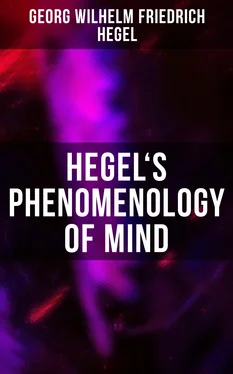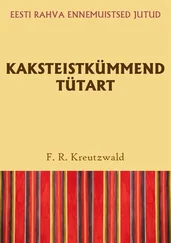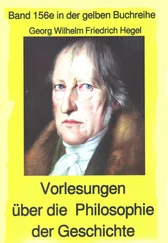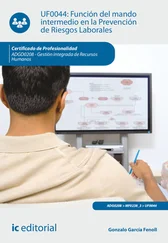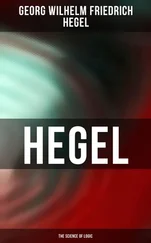Georg Wilhelm Friedrich Hegel - Hegel's Phenomenology of Mind
Здесь есть возможность читать онлайн «Georg Wilhelm Friedrich Hegel - Hegel's Phenomenology of Mind» — ознакомительный отрывок электронной книги совершенно бесплатно, а после прочтения отрывка купить полную версию. В некоторых случаях можно слушать аудио, скачать через торрент в формате fb2 и присутствует краткое содержание. Жанр: unrecognised, на английском языке. Описание произведения, (предисловие) а так же отзывы посетителей доступны на портале библиотеки ЛибКат.
- Название:Hegel's Phenomenology of Mind
- Автор:
- Жанр:
- Год:неизвестен
- ISBN:нет данных
- Рейтинг книги:4 / 5. Голосов: 1
-
Избранное:Добавить в избранное
- Отзывы:
-
Ваша оценка:
- 80
- 1
- 2
- 3
- 4
- 5
Hegel's Phenomenology of Mind: краткое содержание, описание и аннотация
Предлагаем к чтению аннотацию, описание, краткое содержание или предисловие (зависит от того, что написал сам автор книги «Hegel's Phenomenology of Mind»). Если вы не нашли необходимую информацию о книге — напишите в комментариях, мы постараемся отыскать её.
Hegel's Phenomenology of Mind — читать онлайн ознакомительный отрывок
Ниже представлен текст книги, разбитый по страницам. Система сохранения места последней прочитанной страницы, позволяет с удобством читать онлайн бесплатно книгу «Hegel's Phenomenology of Mind», без необходимости каждый раз заново искать на чём Вы остановились. Поставьте закладку, и сможете в любой момент перейти на страницу, на которой закончили чтение.
Интервал:
Закладка:
The beginning of culture and of the struggle to pass out of the unbroken immediacy of naive Psychical life has always to be made by acquiring knowledge of universal principles and points of view, by striving, in the first instance, to work up simply to the thought of the subject-matter in general, not forgetting at the same time to give reasons for supporting it or refuting it, to apprehend the concrete riches and fullness contained in its various determinate qualities, and to know how to furnish a coherent, orderly account of it and a responsible judgment upon it. This beginning of mental cultivation will, however, very soon make way for the earnestness of actual life in all its fullness, which leads to a living experience of the subject-matter itself; and when, in addition, conceptual thought strenuously penetrates to the very depths of its meaning, such knowledge and style of judgment will keep their clue place in everyday thought and conversation.
The systematic development of truth in scientific form can alone be the true shape in which truth exists. To help to bring philosophy nearer to the form of science-that goal where it can lay aside the name of love of knowledge and be actual knowledge-that is what I have set before me. The inner necessity that knowledge should be science lies in its very nature; and the adequate and sufficient explanation for this lies simply and solely in the systematic exposition Of philosophy itself. The external necessity, however, so far as this is apprehended in a universal way, and apart from the accident of the personal element and the particular occasioning influences affecting the individual, is the same as the internal: it lies in the form and shape in which the process of time presents the existence of its moments. To show that the time process does raise philosophy to the level of scientific system would, therefore, be the only true justification of the attempts which aim at proving that philosophy must assume this character; because the temporal process would thus bring out and lay bare the necessity of it, nay, more, would at the same time be carrying out that very aim itself.
When we state the true form of truth to be its scientific character-or, what is the same thing, when it is maintained that truth finds the medium of its existence in notions or conceptions alone-I know that this seems to contradict an idea with all its consequences which makes great pretensions and has gained widespread acceptance and conviction at the present time. A word of explanation concerning this contradiction seems, therefore, not out of place, even though at this stage it can amount to no more than a dogmatic assurance exactly like the view we are opposing. If, that is to say, truth exists merely in what, or rather exists merely as what, is called at one time intuition, at another immediate knowledge of the Absolute, Religion, Being-not being in the centre of divine love, but the very Being of this centre, of the Absolute itself-from that point of view it is rather the opposite of the notional or conceptual form which would be required for systematic philosophical exposition. The Absolute on this view is not to be grasped in conceptual form, but felt, intuited; it is not its conception, but the feeling of it and intuition of it that are to have the say and find expression.
If we consider the appearance of a claim like this in its more general setting, and look at the level which the self-conscious mind at present occupies, we shall find that self-consciousness has got beyond the substantial fullness of life, which it used to carry on in the element of thought-beyond the state of immediacy of belief, beyond the satisfaction and security arising from the assurance which consciousness possessed of being reconciled with ultimate reality and with its all. pervading presence, within as well as without. Self-conscious mind has not merely passed beyond that to the opposite extreme of insubstantial reflection of self into self, but beyond this too. It has not merely lost its essential and concrete life, it is also conscious of this loss and of the transitory finitude characteristic of its content. Turning away from the husks it has to feed on, and confessing that it lies in wickedness and sin, it reviles itself for so doing, and now desires from philosophy not so much to bring it to a knowledge of what it is, as to obtain once again through philosophy the restoration of that sense of solidity and substantiality of existence it has lost. Philosophy is thus expected not so much to meet this want by opening up the compact solidity of substantial existence, and bringing this to the light and level of self-consciousness is not so much to bring chaotic conscious life back to the orderly ways of thought, and the simplicity of the notion, as to run together what thought has divided asunder suppress the notion with its distinctions, and restore the feeling of existence. What it wants from philosophy is not so much insight as edification. The beautiful the holy, the eternal, religion, love-these are the bait required to awaken the desire to bite: not the notion, but ecstasy, not the march of cold necessity in the subject-matter, but ferment and enthusiasm-these are to be the ways by which the wealth of the concrete substance is to be stored and increasingly extended.
With this demand there goes the strenuous effort, almost perfervidly zealous in its activity, to rescue mankind from being sunken in what is sensuous, vulgar, and of fleeting importance, and to raise men’s eyes to the stars; as if men had quite forgotten the divine, and were on the verge of finding satisfaction, like worms, in mud and water. Time was when man had a heaven, decked and fitted out with endless wealth of thoughts and pictures. The significance of all that is, lay in the thread of light by which it was attached to heaven; instead of dwelling in the present as it is here and now, the eye glanced away over the present to the Divine, away, so to say, to a present that lies beyond. The mind’s gaze had to be directed under compulsion to what is earthly, and kept fixed there; and it has needed a long time to introduce that clearness, which only celestial realities had, into the crassness and confusion shrouding the sense of things,earthly, and to make attention to the immediate present as such, which was called Experience, of interest and of value. Now we have apparently the need for the opposite of all this; man’s mind and interest are so deeply rooted in the earthly that we require a like power to have them raised above that level. His spirit shows such poverty of nature that it seems to long for the mere pitiful feeling of the divine in the abstract, and to get refreshment from that, like a wanderer in the desert craving for the merest mouthful of water. By the little which can thus satisfy the needs of the human spirit we can measure the extent of its loss.
This easy contentment in receiving, or stinginess in giving, does not suit the character of science. The man who only seeks edification, who wants to envelop in mist the manifold diversity of his earthly existence and thought, and craves after the vague enjoyment of this vague and indeterminate Divinity-he may look where he likes to find this: he will easily find for himself the means to procure something he can rave over and puff himself up withal. But philosophy must beware of wishing to be edifying.
Still less must this kind of contentment, which holds science in contempt, take upon itself to claim that raving obscurantism of this sort is something higher than science. These apocalyptic utterances pretend to occupy the very centre and the deepest depths; they look askance at all definiteness and preciseness meaning; and they deliberately hold back from conceptual thinking and the constraining necessities of thought, as being the sort of reflection which, they say, can only feel at home in the sphere of finitude. But just as the-re is a breadth which is emptiness, there is a depth which is empty too: as we may have an extension of substance which overflows into finite multiplicity without the power of keeping the manifold together, in the same way we may have an insubstantial intensity which, keeping itself in as mere force without actual expression, is no better than superficiality. The force of mind is only as great as its expression; its depth only as deep as its power to expand and lose itself when spending and giving out its substance. Moreover, when this unreflective emotional knowledge makes a pretence of having immersed its own very self in the depths of the absolute Being, and of philosophizing in all holiness and truth, it hides from itself the fact that instead of devotion to God, it rather, by this contempt for all measurable precision and definiteness, simply attests in its own case the fortuitous character of its content, and in the other endows God with its own caprice. When such minds commit themselves to the unrestrained ferment of sheer emotion, they think that, by putting a veil over self-consciousness, and surrendering all understanding, they are thus God’s beloved ones to whom He gives His wisdom in sleep. This is the reason, too, that in point of fact, what they do conceive and bring forth in sleep is dreams.
Читать дальшеИнтервал:
Закладка:
Похожие книги на «Hegel's Phenomenology of Mind»
Представляем Вашему вниманию похожие книги на «Hegel's Phenomenology of Mind» списком для выбора. Мы отобрали схожую по названию и смыслу литературу в надежде предоставить читателям больше вариантов отыскать новые, интересные, ещё непрочитанные произведения.
Обсуждение, отзывы о книге «Hegel's Phenomenology of Mind» и просто собственные мнения читателей. Оставьте ваши комментарии, напишите, что Вы думаете о произведении, его смысле или главных героях. Укажите что конкретно понравилось, а что нет, и почему Вы так считаете.
